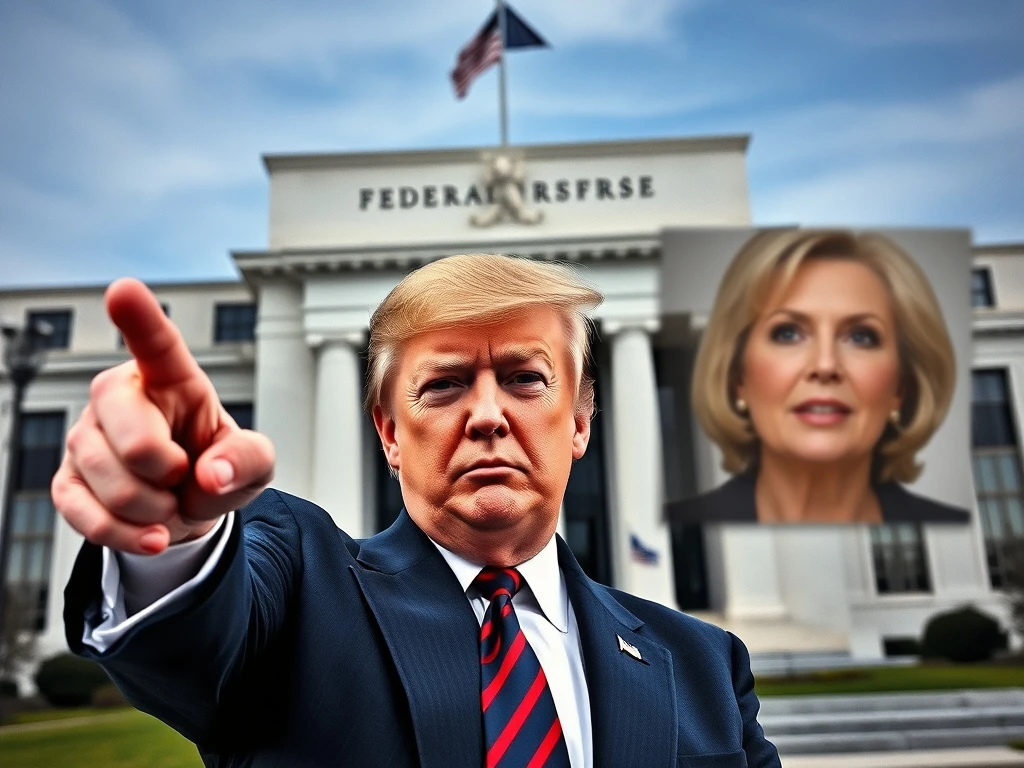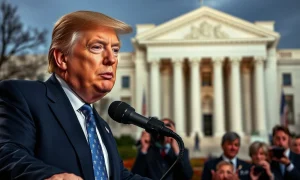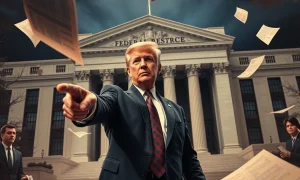In a stunning development that rocked financial markets, former President Donald Trump has announced the dismissal of Federal Reserve Governor Lisa Cook, marking a significant escalation in his efforts to reshape the U.S. central bank’s leadership and policy direction.
Trump Fires Fed Governor in Unprecedented Move
Donald Trump confirmed yesterday that he terminated Federal Reserve Governor Lisa Cook from her position. This action represents a direct challenge to the Federal Reserve’s traditional independence. Consequently, financial experts express deep concern about potential political interference in monetary policy decisions. Moreover, this move could establish a dangerous precedent for future administrations.
Implications for Federal Reserve Independence
The decision to fire a sitting Fed governor raises critical questions about central bank autonomy. Historically, the Federal Reserve maintains operational independence from political pressure. However, Trump’s action demonstrates his willingness to challenge this long-standing convention. Financial markets reacted immediately to the news:
- Stock markets showed increased volatility following the announcement
- Bond yields fluctuated as investors assessed the implications
- Currency markets experienced heightened uncertainty about future policy
Lisa Cook’s Tenure and Policy Stance
Governor Lisa Cook joined the Federal Reserve Board in May 2022 after Senate confirmation. During her tenure, she consistently advocated for careful monetary policy approaches. Specifically, she emphasized the importance of data-driven decision making. Furthermore, Cook focused on employment issues and economic inclusivity throughout her service.
Legal Authority and Presidential Powers
The president’s authority to remove Fed governors remains a complex legal question. Federal Reserve Act provisions suggest limited removal powers except for cause. However, previous court rulings have expanded presidential authority in certain circumstances. Legal experts currently debate the validity of this specific dismissal.
Market Reactions and Economic Consequences
Financial institutions quickly responded to the leadership change. Major banks issued statements expressing commitment to stability. Meanwhile, investors adjusted their portfolios based on anticipated policy shifts. Economic analysts predict several potential outcomes:
- Policy uncertainty may affect business investment decisions
- Interest rate expectations could become more volatile
- International confidence in U.S. monetary policy might decrease
Historical Context of Fed Leadership Changes
Presidential attempts to influence Federal Reserve leadership have occurred before. However, direct removal of sitting governors remains extremely rare. Previous administrations have typically waited for terms to expire before making changes. This action represents a significant departure from established norms.
Future Implications for Monetary Policy
The Federal Reserve faces crucial decisions in the coming months. Leadership stability traditionally supports consistent policy implementation. Now, uncertainty about board composition may affect upcoming rate decisions. Additionally, international counterparts will closely monitor these developments.
FAQs
Can the president legally fire a Federal Reserve governor?
The Federal Reserve Act allows removal only for cause, making this action legally questionable and likely to face court challenges.
What was Lisa Cook’s position on interest rates?
Governor Cook generally supported data-dependent approaches and emphasized balancing inflation control with employment goals.
How will this affect future Fed decisions?
The dismissal creates uncertainty about policy direction and may influence upcoming votes on interest rates and regulatory matters.
What happens to the vacant board position?
The president must nominate a replacement, who then requires Senate confirmation, a process that typically takes several months.
How have markets reacted to similar events historically?
Historical precedent shows markets generally dislike uncertainty about Federal Reserve leadership and policy direction.
What does this mean for Federal Reserve independence?
This action challenges the traditional independence of the central bank and may set precedents for future political influence.






















